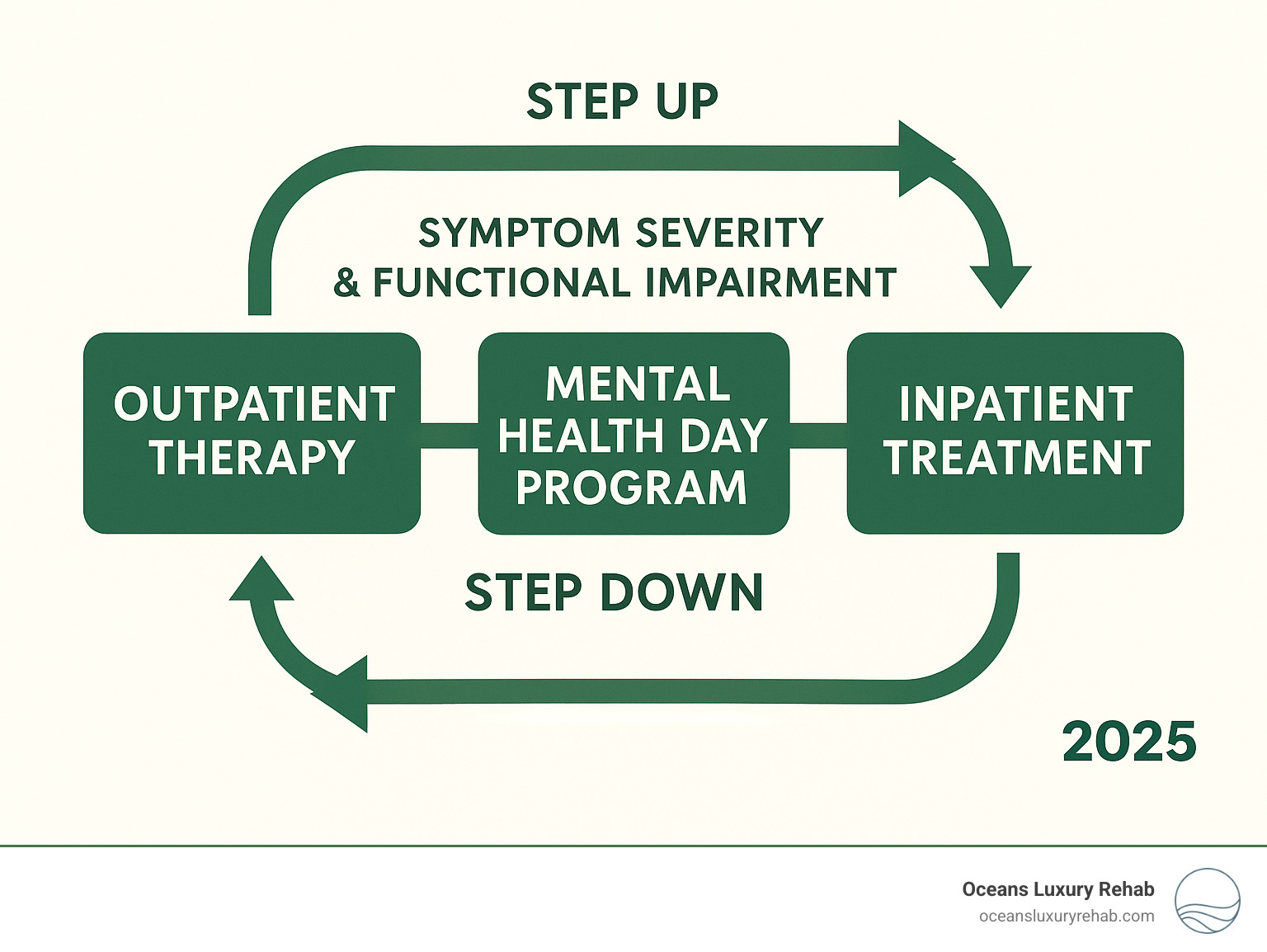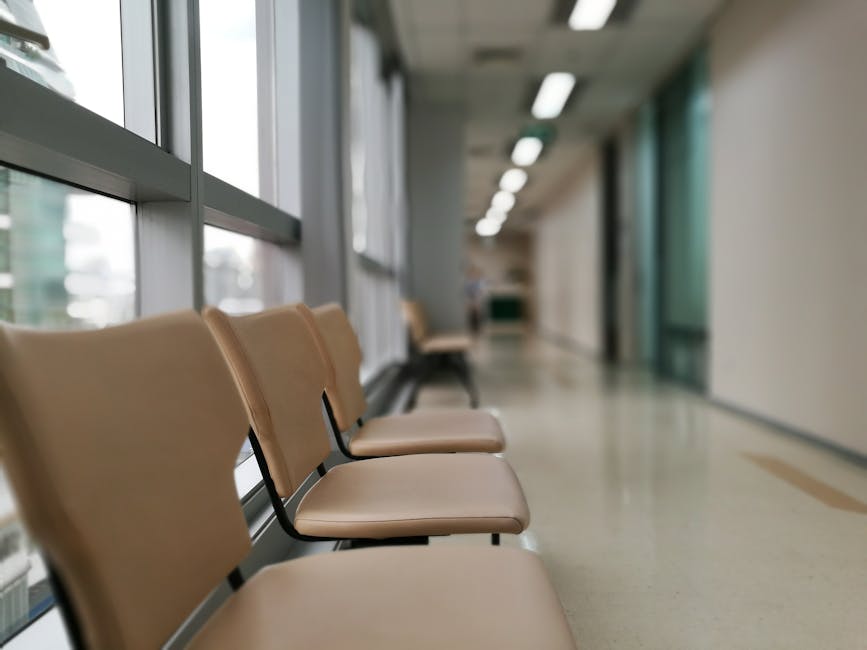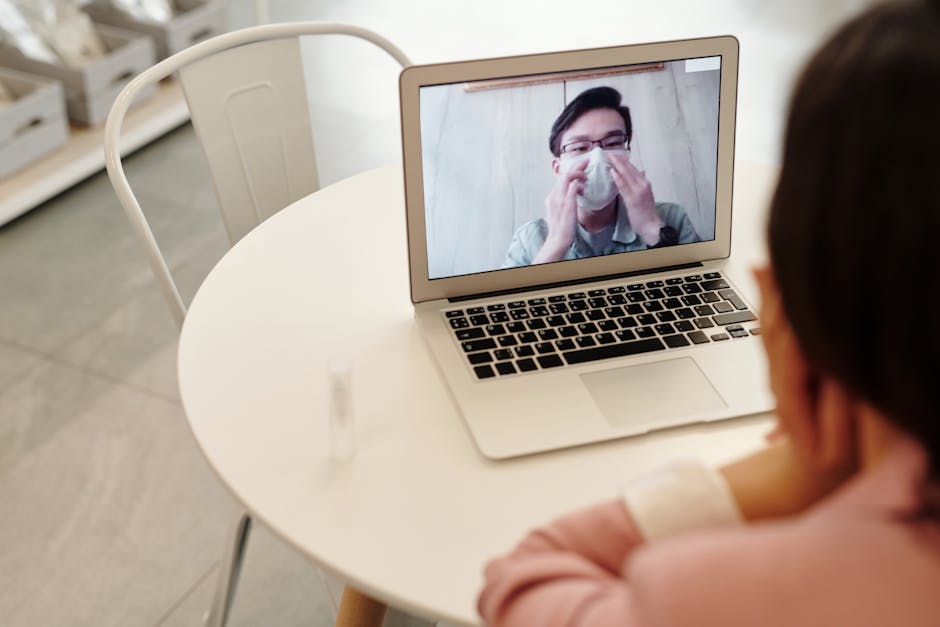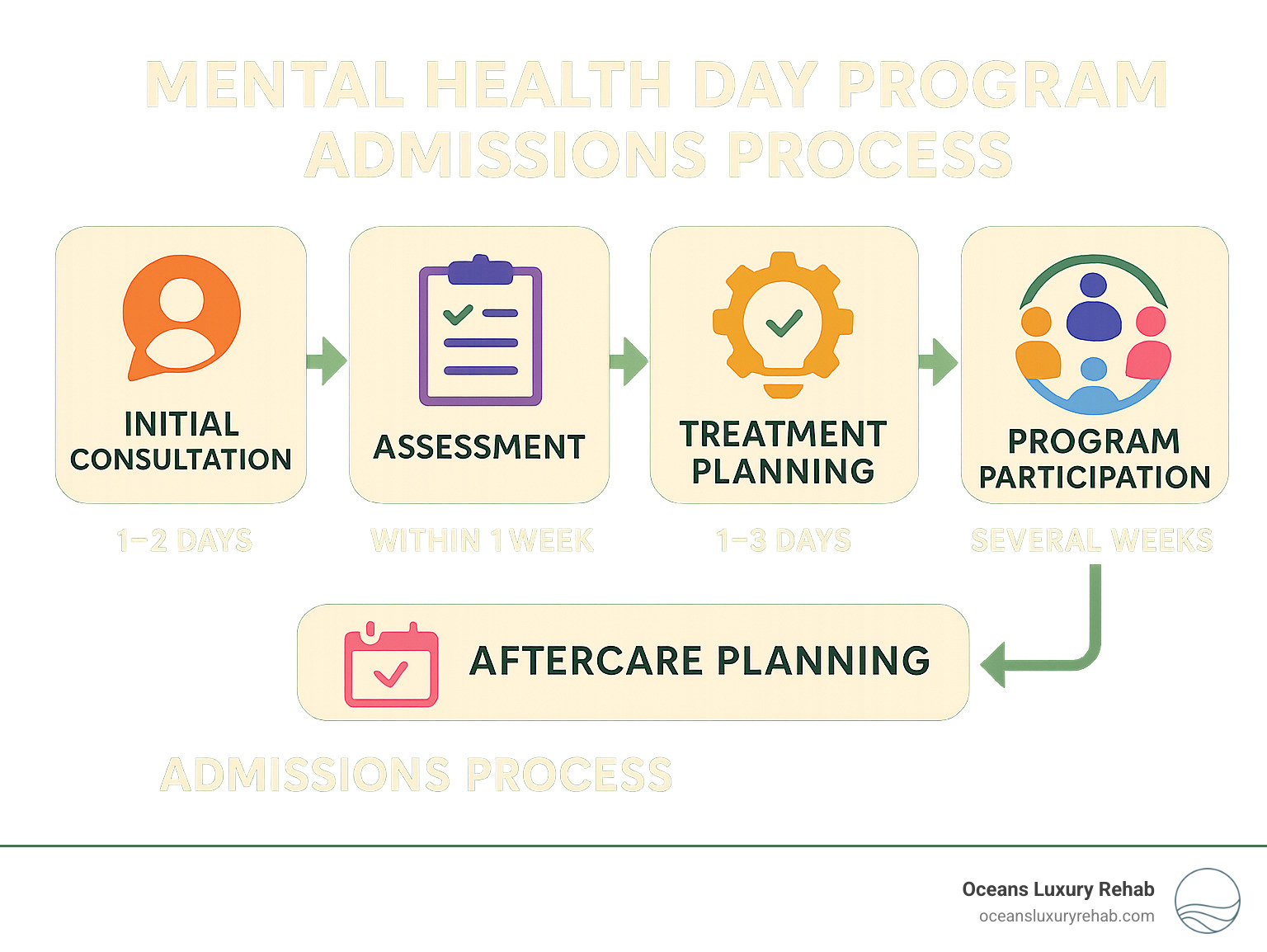Why Mental Health Day Programs Are Changing Recovery
A mental health day program offers intensive therapeutic support during daytime hours while allowing participants to return home each evening. These programs bridge the gap between inpatient hospitalization and traditional weekly therapy sessions.
Key features of mental health day programs:
- Structure: Daily group and individual therapy sessions, typically 4-6 hours per day
- Duration: Usually 4-12 weeks depending on individual needs
- Team approach: Psychiatrists, nurses, social workers, and therapists working together
- Flexibility: Maintain work responsibilities and family connections
- Evidence-based: Uses proven therapies like CBT, DBT, and mindfulness techniques
Mental health day programs serve as either a step-down from inpatient care or an alternative to hospitalization. They’re particularly effective for mood disorders, anxiety, PTSD, and dual diagnosis conditions.
These programs work because they provide hospital-level intensity while preserving your daily routine and responsibilities. You get comprehensive treatment without the disruption of overnight stays.
I’m Clint Kreider, and with 5 years of experience in addiction treatment and 8 years in private practice, I’ve seen how mental health day programs can transform lives by providing the right level of care at the right time.

Mental health day program further reading:
- php mental health
- adolescent partial hospitalization program
- how long are partial hospitalization programs
Mental Health Day Program Essentials
A mental health day program offers that sweet spot between intensive hospital care and weekly therapy sessions – giving you the support you need while letting you sleep in your own bed each night.
These programs go by several names, including Partial Hospitalization Programs (PHP) or day hospitals. Think of them as your daily dose of intensive healing in a structured, supportive community environment.

The beauty of a mental health day program lies in its team approach. Psychiatrists handle medication needs, nurses monitor health, social workers help with community resources, occupational therapists work on daily living skills, and peer support specialists share lived experience.
Most programs run Monday through Friday, typically 9 AM to 3 PM. This schedule provides intensive support while preserving evenings and weekends for family time. The structured sessions focus on symptom stabilization and community reintegration.
| Treatment Level | Hours per Day | Days per Week | Duration | Best For |
|---|---|---|---|---|
| Day Program/PHP | 4-6 hours | 4-7 days | 4-12 weeks | Step-down from inpatient, hospital alternative |
| Inpatient | 24 hours | 7 days | 1-4 weeks | Acute crisis, safety concerns |
| Standard Outpatient | 1 hour | 1-2 days | Ongoing | Stable symptoms, maintenance |
Scientific research on day treatment effectiveness shows that day programs successfully reduce future hospitalizations while improving daily functioning.
Who Benefits From a Mental Health Day Program
A mental health day program works best for people who need more than weekly therapy but don’t require round-the-clock hospital care. If symptoms are seriously affecting daily life but you can participate in groups and return home safely, you might be an ideal candidate.
Major depressive disorder often responds well to day programs, especially when depression affects work, relationships, or self-care. Bipolar disorder during mood episodes benefits from medication monitoring and skills training. Anxiety disorders improve dramatically through group support and coping skills practice.
Post-traumatic stress disorder with complex trauma finds healing in the comprehensive approach. Borderline personality disorder particularly benefits from DBT skills practice. Dual diagnosis situations get integrated treatment for both mental health and substance use concerns.
Day programs serve different age groups: Adolescents (13-17) get age-appropriate groups addressing school and family issues. Adults (26-64) focus on work stress and life transitions. Older adults (65+) address retirement and health concerns.
The program works particularly well as a step-down from hospital care, providing gradual transition while maintaining therapeutic intensity.
Therapies, Schedule & Expected Outcomes
A mental health day program blends several proven therapies to address your unique needs, creating comprehensive treatment beyond traditional talk therapy.
Cognitive Behavioral Therapy (CBT) helps identify connections between thoughts, feelings, and behaviors. Dialectical Behavior Therapy (DBT) teaches mindfulness, distress tolerance, emotional regulation, and interpersonal effectiveness. Acceptance and Commitment Therapy (ACT) helps accept difficult emotions while staying committed to values.

Mindfulness and meditation practices provide practical anxiety and stress management tools. Expressive arts therapy opens new ways to process emotions through music, art, and movement. Recreation therapy builds social skills and confidence through structured activities.
A typical day runs 9 AM to 3 PM: Morning group therapy (9:00-10:30) focuses on CBT or DBT skills. Individual therapy (10:45-12:00) provides one-on-one support. Lunch time (12:00-1:00) offers peer interaction. Afternoon groups (1:00-2:30) cover mindfulness or life skills. Planning time (2:30-3:00) reviews learning and sets goals.
Expected outcomes include significant symptom reduction, improved coping skills, better relationships, increased emotional regulation, reduced hospitalization risk, and improved daily functioning.
More info about PHP mental health services provides additional details about therapeutic approaches.
Admission, Eligibility, Costs & Insurance
Getting into a mental health day program usually starts with a referral from a healthcare provider. Referrals typically come from psychiatrists, hospital discharge planners, community mental health centers, or emergency departments. Some programs accept self-referrals.
Admission requires primary psychiatric diagnosis needing intensive treatment, medical stability, ability to participate in groups, and commitment to daily attendance. Exclusion criteria include active psychosis, recent ECT, significant cognitive impairment, violence history, or medical instability.
Insurance coverage is generally good. Most health insurance plans cover partial hospitalization under mental health parity laws. Private insurance usually covers with prior authorization. Medicare and Medicaid typically include coverage. Many programs offer sliding scale fees for uninsured patients.
Out-of-pocket costs range $300-800 per day without insurance, but most people pay much less with coverage. Does Insurance Cover Partial Hospitalization Program? provides comprehensive coverage information.
Wait times vary: crisis referrals are accommodated within days, while outpatient referrals may face several weeks’ wait. Scientific research on access barriers highlights transportation and scheduling challenges that can affect access.
Life After Your Program & Finding the Right Fit
Completing a mental health day program marks the beginning of your ongoing recovery journey. The skills you’ve learned need ongoing support to flourish.
Aftercare planning becomes your roadmap for maintaining progress. Community support connections link you with local resources like peer support groups and NAMI meetings. Follow-up therapy arrangements ensure continued momentum through weekly sessions or medication management.
Telehealth options have revolutionized aftercare support, especially valuable for rural areas or transportation challenges. Many programs offer virtual follow-up sessions and online support groups.

The transition requires attention to daily routine maintenance, skill practice, social connections, crisis planning, and medication adherence. Continued engagement in meaningful activities supports long-term recovery.
More info about Adult Partial Hospitalization Program offers guidance on successful transitions.
Choosing the Right Program & Age-/Diagnosis-Specific Options
Not all mental health day programs are equal. Your age, diagnosis, and preferences determine which program serves you best.
Age-specific tracks: Child and adolescent programs (13-17) focus on family involvement and school coordination. Young adult programs (18-25) address identity development and independence. Adult programs (26-64) accommodate work and family responsibilities. Older adult programs (65+) consider medication interactions and social isolation.
Diagnosis-specific considerations: Trauma-focused programs use EMDR and trauma-informed care. Substance use integrated programs address dual diagnosis. Mood disorder programs specialize in depression and bipolar management. Anxiety programs focus on exposure therapy and cognitive restructuring.
Program selection factors include location, transportation, schedule flexibility, therapeutic approach, staff expertise, and aftercare support. Find programs through hospital websites, insurance directories, physician referrals, and online directories.
Oceans Luxury Rehab: Your Next Step Toward Recovery
At Oceans Luxury Rehab, we understand that choosing the right mental health day program represents a crucial decision in your recovery journey. Our partial hospitalization program in Orange County combines intensive therapeutic support with luxury amenities.
Our personalized approach develops customized treatment plans addressing your specific diagnoses and recovery goals. Our luxury setting provides a serene Orange County environment that promotes healing. 24/7 nursing care ensures safety and support around the clock.

Our program addresses mood disorders, anxiety disorders, PTSD, dual diagnosis conditions, personality disorders, and transitional support after hospitalization.
Located in Orange County, our facility is accessible from Newport Beach, Costa Mesa, Long Beach, and throughout Southern California.
Our evidence-based therapies include CBT, DBT, ACT, mindfulness practices, expressive arts therapy, and family therapy. Flexible scheduling accommodates work and family obligations.
Insurance and financial support includes accepting most major insurance plans with detailed benefits verification. Our financial counselors explore all available options.
Your confidential consultation allows you to explore options without pressure. During this conversation, we’ll discuss your needs and help determine if our mental health day program fits your recovery goals.
Don’t let another day pass struggling with mental health challenges. Our compassionate team is ready to help you take the next step toward healing.
Contact us today to schedule your confidential consultation and learn how our luxury partial hospitalization program can support your recovery. Recovery is possible, and it starts with a single phone call.
